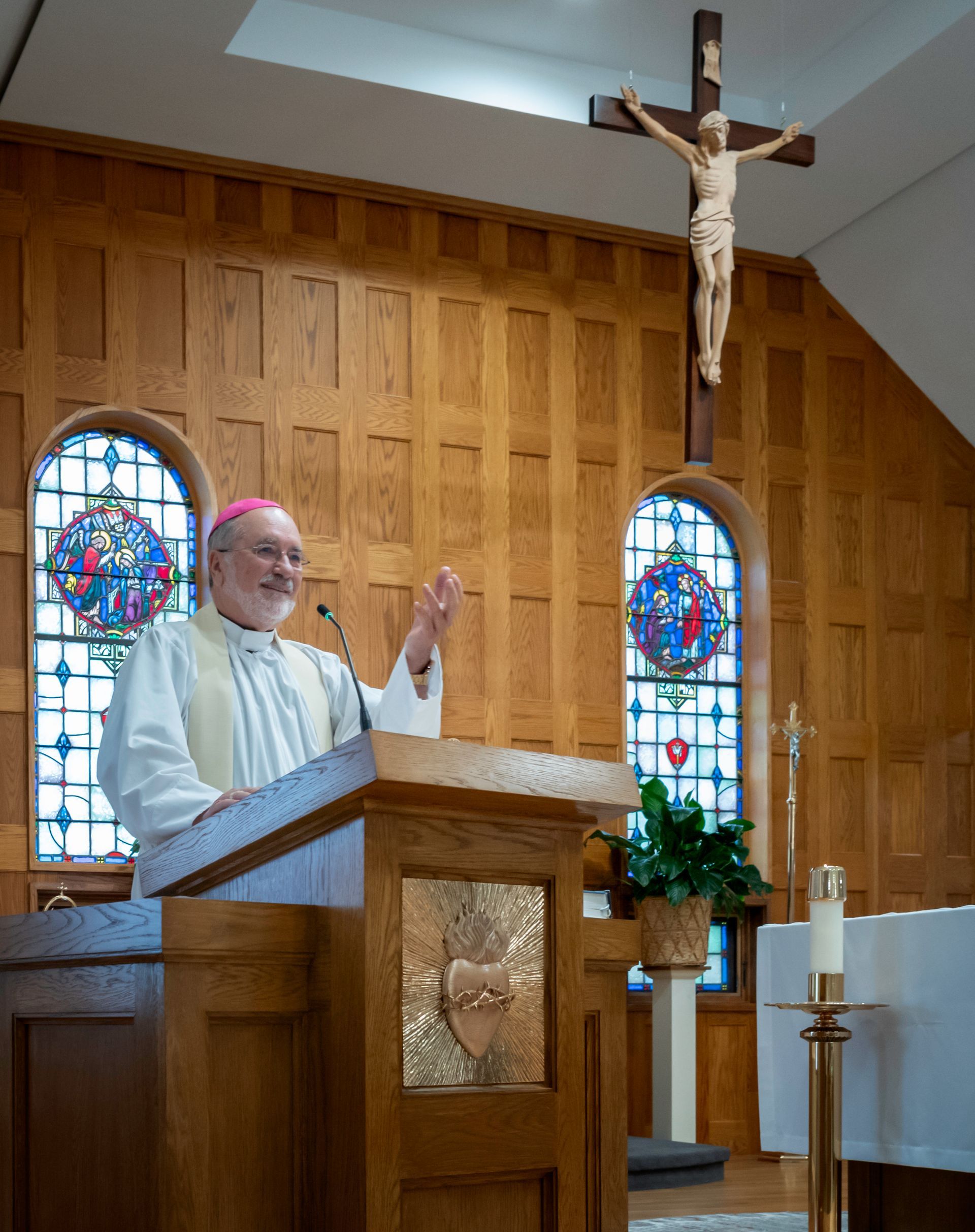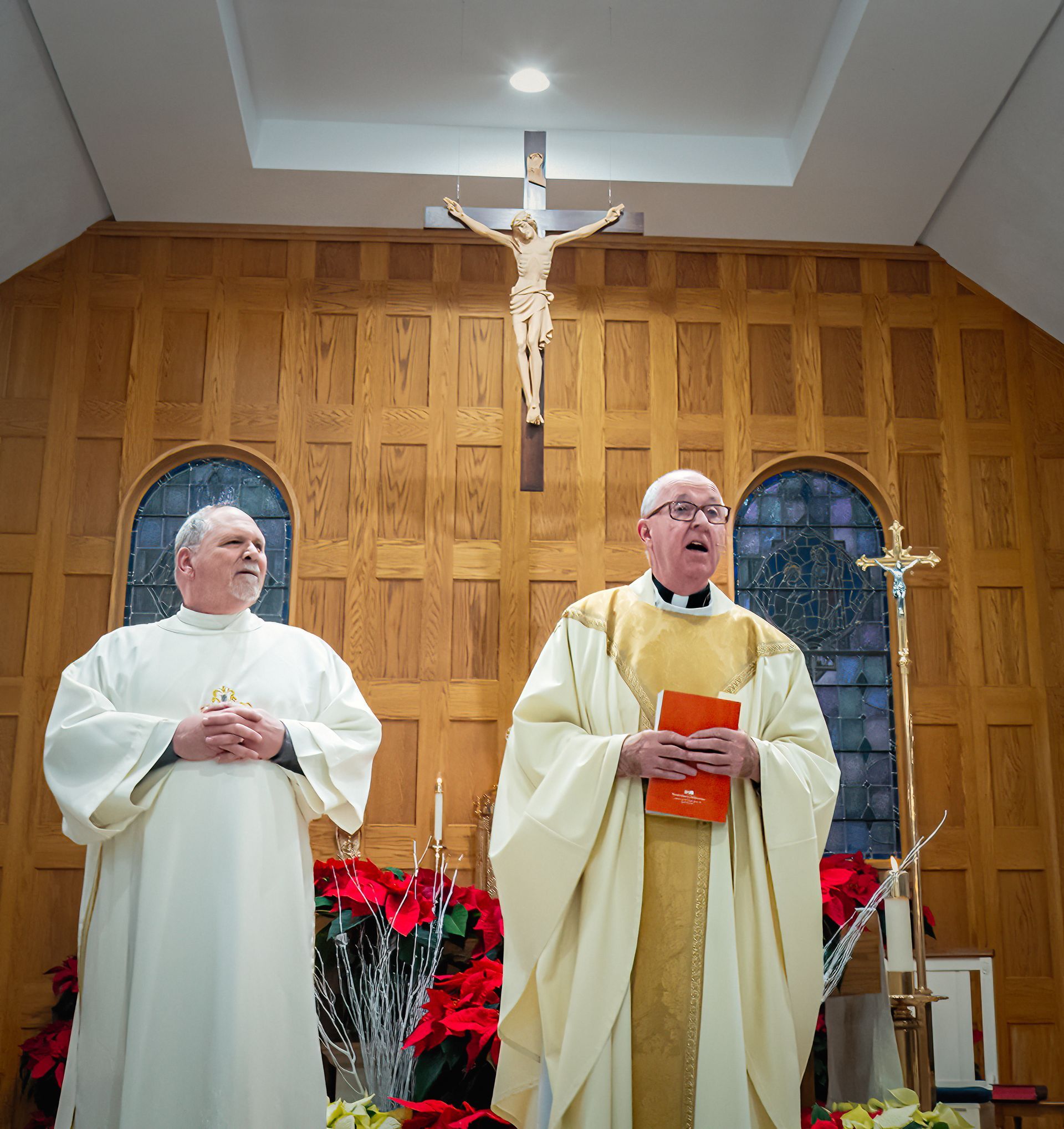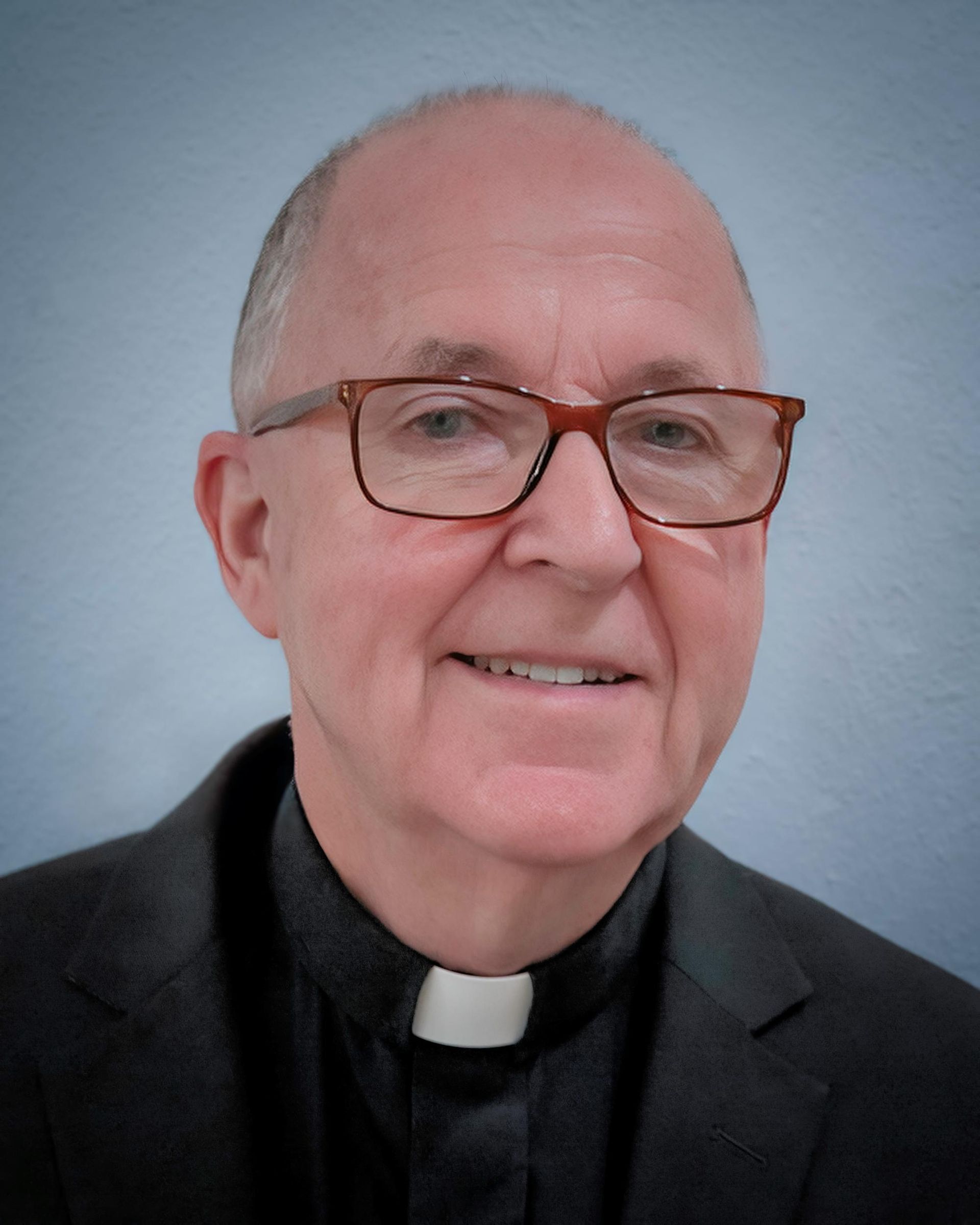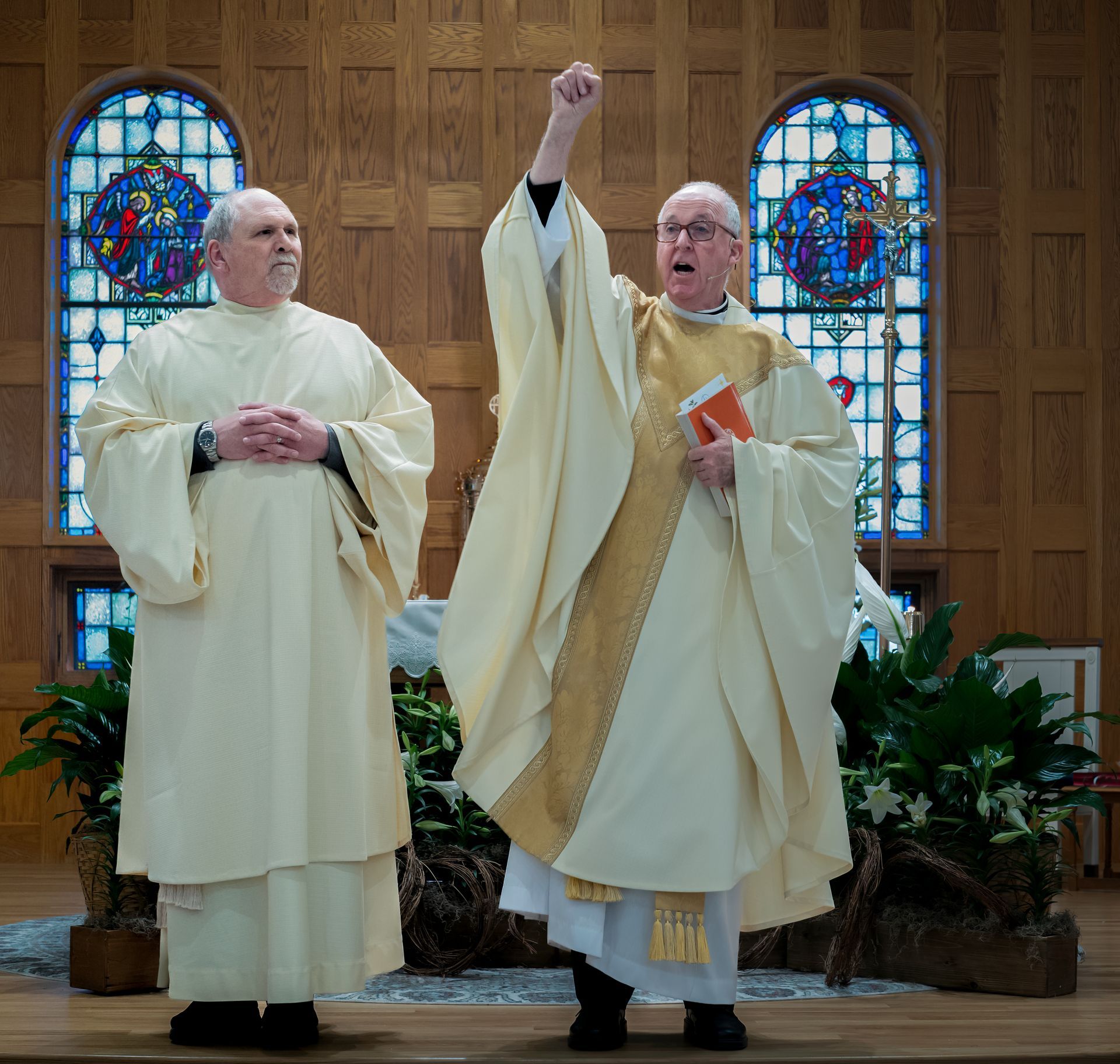3rd Sunday of Ordinary Time Homily
3rd Sunday of Ordinary Time
The one certainty in life is uncertainty; don’t believe that is some special philosophical insight on my part. Anyone who has lived for very long has experienced unexpected situations. Sometimes, they are happy events, like a couple conceiving a child after many years of trying or an inheritance, comes to us from an uncle everyone thought disappeared in Alaska decades ago. Occasionally, they are unwelcome incidents like the sudden death of a loved one, divorce, or the loss of a job. Unexpected events are always a surprise and can be jarring or overwhelming to us.
While we all encounter unexpected events in our lives, why is it that some people use them to grow and thrive in the face of adversity? They use setbacks to develop their character, while others become angry and disheartened with life. Two people can face the same challenge; one rises to the occasion while the other falls apart. One person uses their situation to grow closer to God, while the other loses faith in God.
This is such an important question because God wants to use the good and bad in life so we can grow closer to God. God is so interested in these situations because God can work through unexpected circumstances since that is when God has our attention. When our legs are swept out from under us, it is natural to call out to God.
Regardless of how well we plan out our lives, unexpected events arise. By definition, they cannot be planned for, no matter how we try. They can be
prepared for, though. We can take some spiritual risk management steps to fortify ourselves so we deal well with the unexpected events that come our way.
Over the last several weeks, we have been preaching a series of homilies on the theme, Unexpected. Deacon Art and I have been using the scripture readings to illustrate how people of faith can learn lessons about being prepared for the unexpected from the Bible.
I first told you being part of a parish community is vital. When an unexpected situation knocks us for a loop, we need people to help us stand upright. Sociologists and psychologists have been concerned about a growing loss of community in our culture. Become active in our community here at Holy Redeemer. Don’t just come to church out of a sense of duty. Try to become active here at church. Have you considered becoming a member of a small faith-sharing group?
Recognize that life’s challenges are an opportunity to grow in faith and character. Adversity can make us better individuals. Remember, God is good even when life is not. God loves us and wants to help us through adversity. People who grow in response to adversity help others who are suffering more. The recent California fires give many examples of the benefit of that kind of response.
Last week, we examined that we often end up in unexpected situations because of our bad choices. We tried to take advantage of our circumstances by overlooking doing what is right. What we thought was a shortcut was a short circuit. But our faults and failures don’t define us with God. God is always ready to forgive us and will not exclude us from God’s mercy and grace.
This week, we will learn to prepare for the unexpected by listening to, reading, and reflecting on scripture. Specifically, we will find that lesson in the reading from the Book of Nehemiah and the Gospel of Luke.
The Book of Nehemiah is another of the books of the minor prophets. By minor prophets, we are not saying the book is insignificant, only that it is short. It is an important book for our day because it is all about rebuilding. We are aware that all the Church needs rebuilding. It has been hurt in recent years by increased secularization, the clergy sexual abuse scandal, and COVID-19. We have much rebuilding to do, and the Book of Nehemiah can guide us.
The Book of Nehemiah was written about five hundred years before the birth of Jesus Christ. It tells the tale of the Jewish people returning to Jerusalem after seventy years of exile in Babylon. Unfaithfulness to God allowed the Babylonians to conquer Jerusalem, and most of the people were dragged into exile. Then, Babylonia itself was conquered by the Persians. The Persian King, Cyrus, decided to allow the Jewish people to return to Jerusalem and Judea. He appointed Nehemiah as the new governor of Judea and Ezra as its spiritual leader. Rebuilding always needs both physical and spiritual leadership.
When they got back to Jerusalem, the people found a city in ruins. The walls had been destroyed during the conquest and deteriorated because of neglect since then. In those times, a city without walls was considered a disgrace. It made it weak and vulnerable to attack. Today’s first reading tells of a celebration that was held to commemorate the rebuilding of Jerusalem’s walls.
We heard:
Now when the seventh month came,
the whole people gathered as one in the square in front of the Water Gate,
and they called upon Ezra the scribe to bring forth the book of the law of Moses which the LORD had commanded for Israel.
The walls were complete, and the people were hungry for a spiritual revival. Several generations of the people lived in exile and lost an understanding of their faith and the Hebrew language. They wanted to know more about their relationship with God.
On the first day of the seventh month, therefore,
Ezra the priest brought the law before the assembly,
which consisted of men, women, and those children old enough to understand.
The law referred to here is the Pentateuch, the first five books of the Bible. That is the books of Genesis and Exodus telling of the development of the People’s relationship with God, and Leviticus, Numbers, and Deuteronomy telling of the Law of Moses.
The people were so hungry to hear about God they listened to Ezra, and the Levites read and interpreted the scriptures for five to six hours. Imagine that! They didn’t just let the scriptures go in one ear and out the other. They didn’t just let them wash over them, but they let the Word of God sink into their minds. Can you remember last week’s Mass readings?
The people were so impressed with the word of God and so sorry they and their ancestors had not been faithful to God that they began to cry. They were overwhelmed with awe when they realized all God had done for them. They realized they had missed so much for so long. They were sad to admit all they missed by neglecting God but were also grateful to know what God would do for them in the future.
Then Nehemiah, that is, the governor,
and Ezra the priest-scribe,
and the Levites who were instructing the people said to all the people:
“Today is holy to the LORD your God. Do not lament, do not weep!”
—for all the people were weeping as they heard the words of the law.
He continued:
“Go, eat rich foods and drink sweet drinks,
and allot portions to those who had nothing prepared;
for today is holy to our LORD.
Do not be saddened this day, for rejoicing in the LORD is your strength!”
So, how do the people's reactions in Nehemiah and Ezra’s day pertain to us today, and how do they help us deal with the unexpected? They teach us that growing our faith in everyday life is essential. It comes with daily prayer. It comes by listening to God in our prayer and reading scripture. We grow in our ability to face the unexpected if we come to worship God at Mass weekly. If we make an effort to lend ourselves to the experience of worship through our sung participation, being attentive to the words of the prayers and homily, and thoughtfully and gratefully receiving God’s grace in the Eucharist, the Mass will benefit us by strengthening us to face the unexpected. It will be part of our plan for spiritual risk management. We might even leave Mass feeling excited.
Putting into practice any or all the faith customs we have been telling you about is like making a deposit in a spiritual bank account. We will be depositing the grace we need to draw upon it when unexpected events rock us back on our heels. We will have the resources to weather the storm and even grow in faith.
All relationships grow when we invest time and energy in them. They take effort and energy. They can sometimes become strained and then call for us to recommit to them. Like any investment, we need to be attentive to them for them to grow.
It is the same for our relationship with God. If we want God’s support in our hour of need, we must develop our relationship with God and help equip ourselves for life’s unexpected twists and turns. Reflect on your daily prayer life. How often do you pray, and how much time do you give it? If you do not pray regularly, begin today. Give prayer as little as ten minutes to begin. Find a quiet place and time and listen to and don’t talk at God. Reflecting on a passage of scripture like the daily gospel is always helpful. You will quickly feel your spiritual account growing in your heart.
The Jewish people of Ezra and Nehemiah's day were so full of emotion that they were moved to tears when they realized God’s limitless goodness to them. As we recognize God’s support and protection as we face the unexpected ups and downs of life, may we rejoice and follow Nehemiah’s advice:
“Go, eat rich foods, and drink sweet drinks,
and allot portions to those who had nothing prepared;
for today is holy to our LORD.
Do not be saddened this day, for rejoicing in the LORD is your strength!”





